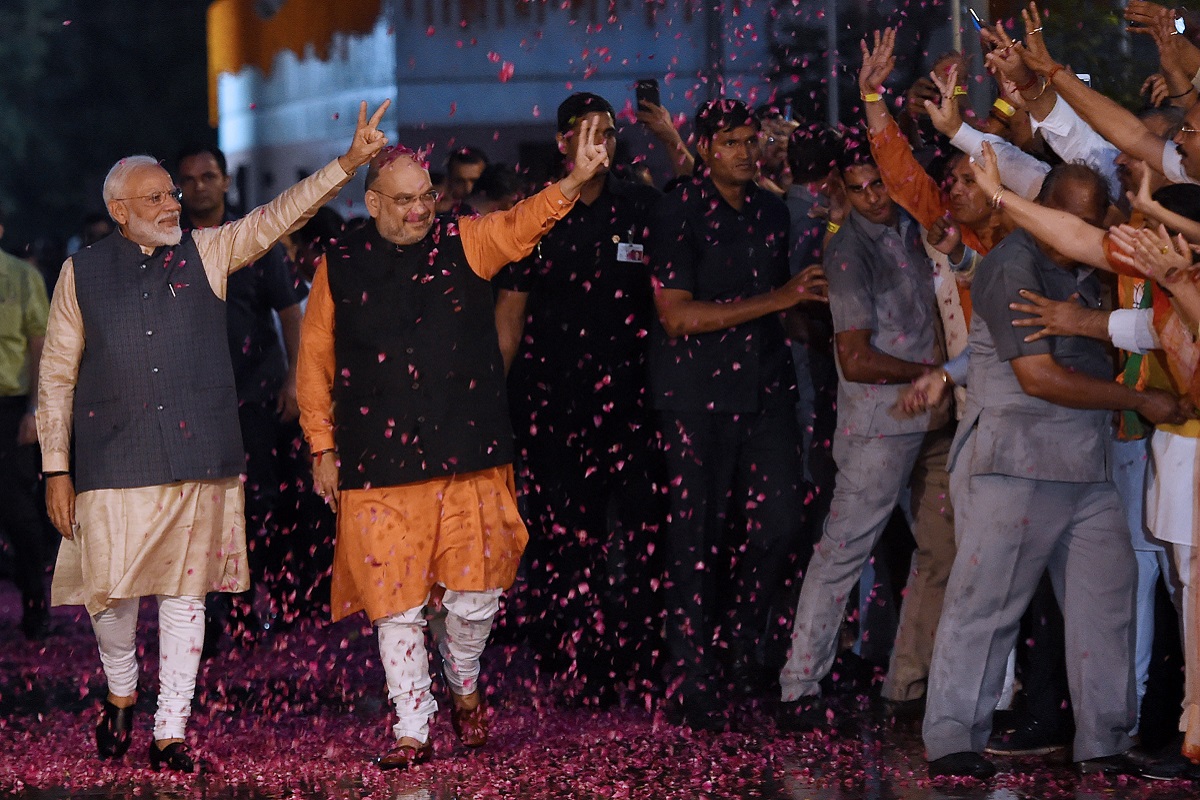As the Bharatiya Janata Party reclaims its place on Raisina Hill, some conclusions are inescapable.
First, India has not had a leader of the stature of Narendra Modi in a very long time, certainly not after Indira Gandhi, for this before anything else is the Prime Minister’s singular triumph.
Advertisement
The BJP’s campaign and its architecture were built around Mr Modi and the outcome demonstrates that he delivered spectacularly. This is not to undermine the role of the party organisation led by Mr Amit Shah and the efforts of the larger Sangh parivar, only to emphasise that without Mr Modi to sell, they might not have found so many buyers.
Second, for all the criticism of failures in policy and implementation including demonetisation, the government delivered in critical areas that mattered at the grassroots level. These included the Ujjwala scheme, homes and/or toilets for many Indians, the promise if not the delivery of healthcare and vastly improved infrastructure.
Third, when pitted against a fragmented opposition and the uncertainties around the question of who might lead it, Mr Modi came across as a solid, stable and even, especially to those concerned about security, comforting leader.
Fourth, while the Congress may have marginally improved its 2014 position, it remains a party unworthy of consideration as a national alternative. Certainly, Mr Modi’s consistent message about the party being the fiefdom of a single family has resonated strongly with voters. Unless the Congress’ introspection now embraces this reality, it is unlikely to find its feet; at the time of writing, it was struggling to ensure that it officially qualified to offer from its ranks a Leader of the Opposition.
Fifth, when it came to the mechanics of stitching together alliances, the BJP outperformed its rivals, except in Tamil Nadu. While the Congress and regional parties couldn’t make up their minds on who to slip into bed with and when, the BJP’s focus was clear on where it needed partners and where it did not.
Finally, in almost a cataclysmic outcome for the Trinamul Congress, the BJP has positioned itself as a force of almost identical strength in West Bengal and the portents for people of the state as the two parties jockey for positions ahead of the 2021 assembly election cannot be edifying. Other factors that decided the 2019 outcome will have to await detailed analysis, but for now it must be fairly conceded that Mr Modi has returned to power with some style and considerable substance.
The new government will have its work cut out, both within the country and internationally, especially in the region. Having raised the pitch on security, it will have to adroitly handle relations with Pakistan and China. This mandate is for an aggressive approach, but aggression is seldom a weapon used in diplomacy. Internally, the government will have to address agrarian distress, fears of an economic slowdown and the aspirations of a burgeoning youth.
The government and the ruling party will have to temper their handling of social issues; certainly, they cannot afford to read into Pragya Thakur’s performance at Bhopal an endorsement for divisiveness. But that is for later. For now, India must rejoice in its selection of a stable and strong government, while the ruling party assesses how it may learn from the mistakes of the last five years to provide better governance in the next five.











